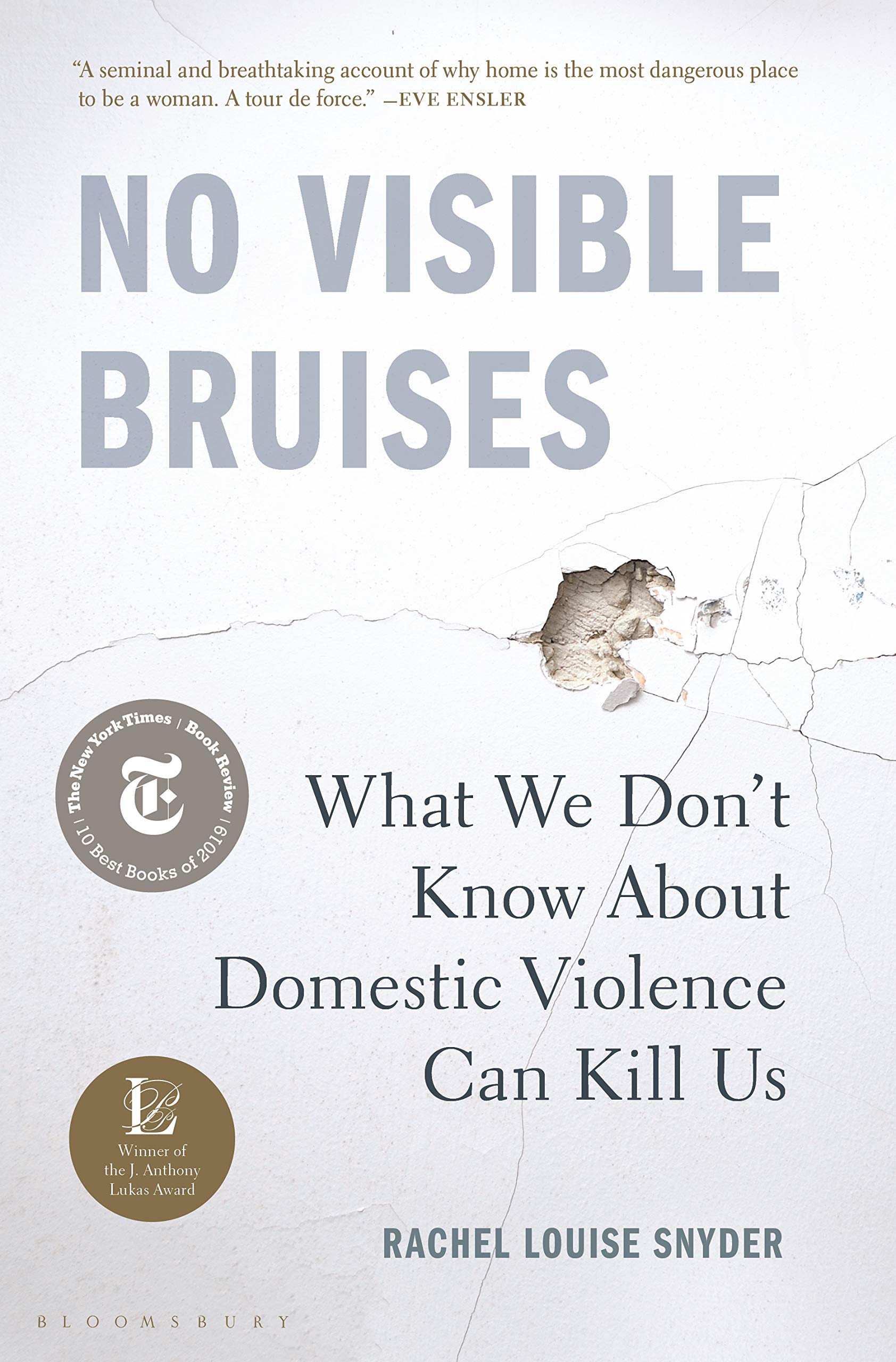It starts with a woman who has been killed—along with her children—by her husband. There is the inability of some of her surviving family to speak of it; the need, by other members, to speak of nothing else. There is law enforcement, who minimized it. There is the judicial system, that is often much harder on survivors of domestic violence and their children than the perpetrators.
“I talk to a lot of people who don’t want to talk to me. People who’ve murdered their families, people who’ve nearly been murdered, people who’ve arrested those murderers, people who’ve grown up with people who’ve nearly murdered them,” writes author Rachel Louise Snyder.
One in four women will be physically abused by an intimate partner in her lifetime. Twelve thousand abused women are killed by an intimate partner each year in the United States alone.
What makes Snyder’s work unique is her looking at all the adults directly involved in a scene of domestic violence. Like a vast and complex webbed organism, Snyder looks, when she can, not solely at the survivors of domestic violence or the stories of those killed through domestic violence, but also at how that violence affects the extended family and community. And, from the haunting narrative intensity of these personal stories to the meticulously researched and damning indictment of the lack of protections afforded women and children who have experienced domestic violence, Snyder’s work is chilling and vital.
In No Visible Bruises, Snyder vividly and humanely excavates the lives of women and children murdered by perpetrators of domestic violence while astutely connecting the dots between the relationship of intimate partner domestic violence to public violence and mass shootings. She looks at batterer prevention programs, domestic violence prevention task forces, the social and other pressures that force women to stay, and the religious and historical acceptance of violence against women.
But above all, Snyder’s urgency is our own current political moment as she questions this: With an administration openly hostile towards women’s freedoms and rights—with a multitude of key leaders both within that administration and appointed by that administration to legislate these issues accused of a multitude of acts of violence toward women—how can we work to actively end domestic violence, and the culture of disrespect and de-personhood of women that creates this violence, through legal and political change?
— Hope Wabuke


 No Visible Bruises: What We Don’t Know About Domestic Violence Can Kill Us by Rachel Louise Snyder (Bloomsbury)
No Visible Bruises: What We Don’t Know About Domestic Violence Can Kill Us by Rachel Louise Snyder (Bloomsbury) 